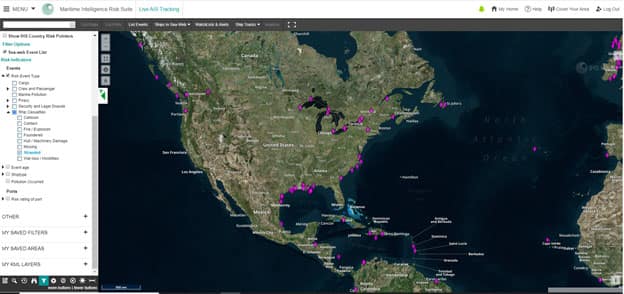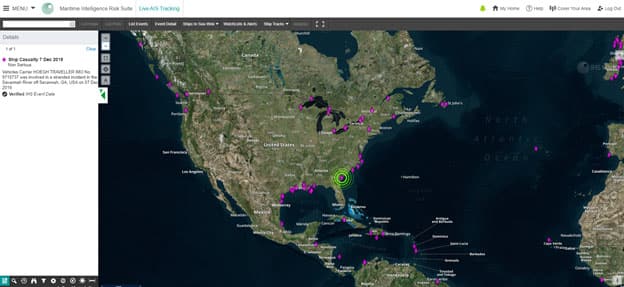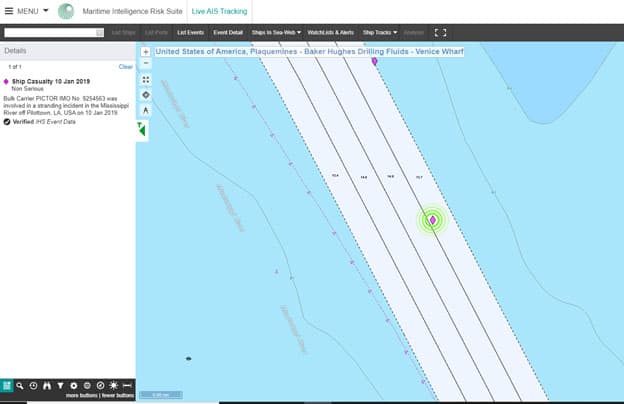Customer Logins
Obtain the data you need to make the most informed decisions by accessing our extensive portfolio of information, analytics, and expertise. Sign in to the product or service center of your choice.
Customer Logins
BLOG
Apr 02, 2020
US Supreme Court Safe Berth Clause
On 31 March 2020 the US Supreme Court decided that the safe berth clause in charter parties establishes a warranty of safety, in what is being hailed as monumental but widely expected decision that could have far reaching consequences in the chartering market.
In the relevant clause, the charter's duty to select a safe berth was absolute. The charter had to designate a berth that was safe and where the vessel could come and go always safely afloat. In the final paragraph of the Opinion, the Supreme Court stated, "Charterers remain free to contract around unqualified language that would otherwise establish a warranty of safety, by expressly limiting the extent of their obligations or liability."
Therefore, the ability to understand which berths are safe for vessels to call, dependent on their draught, in the US has now become very important as failure to comply with this ruling will leave Charterers open from claims for any damages suffered by vessels if they ground entering a port they were chartered to.
By using a platform such as Maritime Intelligence and Risk Suite (MIRS) provided by IHS Markit, then this potential pitfall can be avoided. As the issuer of IMO Numbers IHS Markit has the largest database of commercial ships including draught calculations, enabling charterers to select vessels of the correct draught to enter a port. With additional layers of casualty information and weather data, it is very easy for both charterers and ship owners to make a dynamic assessment as to whether a potential port has suffered any casualties due to groundings in the past and whether a fully laden vessel could enter a port at a given height of tide. By providing these types of dynamic insights it is IHS Markit's objective to enable effective trade around the world whilst helping those involved in this energetic business make informed, time critical decisions.
Figure 1: Casualty events filter solely by stranded vessels - provides clarity to what you need to see

Figure 2: Example of the data given for each casualty: Date, Vessel Name, IMO and narrative of casualty

Figure 3: Example showing ENC (Electronic Navigation Chart) information available within MIRS

View the full ruling for more information on this topic.
Post created by: George Devereese, MIRS Product Management Maritime & Trade, IHS Markit
{"items" : [
{"name":"share","enabled":true,"desc":"<strong>Share</strong>","mobdesc":"Share","options":[ {"name":"facebook","url":"https://www.facebook.com/sharer.php?u=http%3a%2f%2fssl.ihsmarkit.com%2fmarketintelligence%2fen%2fmi%2fresearch-analysis%2fus-supreme-court-safe-berth-clause.html","enabled":true},{"name":"twitter","url":"https://twitter.com/intent/tweet?url=http%3a%2f%2fssl.ihsmarkit.com%2fmarketintelligence%2fen%2fmi%2fresearch-analysis%2fus-supreme-court-safe-berth-clause.html&text=US+Supreme+Court+Safe+Berth+Clause+%7c+S%26P+Global+","enabled":true},{"name":"linkedin","url":"https://www.linkedin.com/sharing/share-offsite/?url=http%3a%2f%2fssl.ihsmarkit.com%2fmarketintelligence%2fen%2fmi%2fresearch-analysis%2fus-supreme-court-safe-berth-clause.html","enabled":true},{"name":"email","url":"?subject=US Supreme Court Safe Berth Clause | S&P Global &body=http%3a%2f%2fssl.ihsmarkit.com%2fmarketintelligence%2fen%2fmi%2fresearch-analysis%2fus-supreme-court-safe-berth-clause.html","enabled":true},{"name":"whatsapp","url":"https://api.whatsapp.com/send?text=US+Supreme+Court+Safe+Berth+Clause+%7c+S%26P+Global+ http%3a%2f%2fssl.ihsmarkit.com%2fmarketintelligence%2fen%2fmi%2fresearch-analysis%2fus-supreme-court-safe-berth-clause.html","enabled":true}]}, {"name":"rtt","enabled":true,"mobdesc":"Top"}
]}



